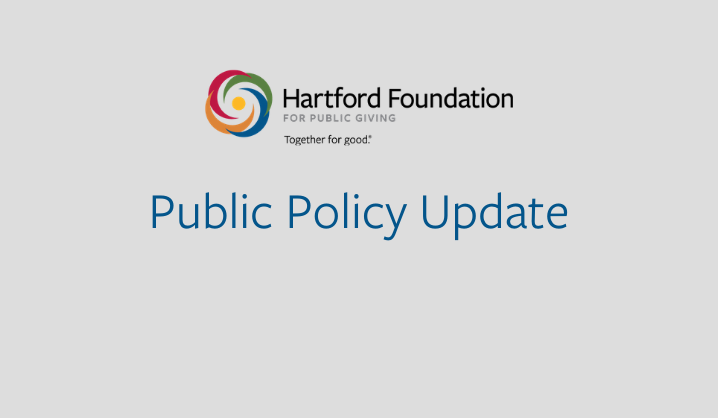New & Noteworthy

Hartford Foundation Testifies in Support of Bill to Develop a Plan to Increase the Number of Child Care Centers on or Near Each Campus of the Regional Community-Technical Colleges and State Universities
Read the Foundation's Testimony
On Tuesday, March 8, the Hartford Foundation for Public Giving provided testimony to the legislature’s Higher Education and Advancement Committee in support of House Bill 5115, An Act Requiring a Plan to Increase the Number of Child Care Centers on or Near Each Campus of the Regional Community-Technical Colleges and State Universities.
In Greater Hartford, there are a number of good paying jobs available, but there is misalignment between the skillsets required and the skills of the current workforce. The Foundation’s efforts focus on preparation, hiring and retention of residents with significant barriers to employment, including returning citizens and youth disconnected from school and work.
For example, among students from Greater Hartford’s Alliance Districts where participation rates in postsecondary training are comparatively low, our efforts aim to increase career exposure and postsecondary degree and credential completion, leading to better employment opportunities. This work includes 2Gen approaches that take a family-centered approach that considers childcare and supports for both the parents and children to allow parents to focus on their education and training.
Our current focus on promoting access to quality childcare as a strategy to increase employment opportunities for Greater Hartford residents is informed by our long support for the early childhood in Greater Hartford. Since 1987, the Foundation has invested more than $40 million in early childhood development across Greater Hartford. It has been our goal to ensure that all children, especially those most vulnerable, have access to high quality early childhood experiences.
In January 2016, the Foundation launched the Career Pathways Initiative (CPI) that integrated education programs, support services, and career development to assist adult learners and expand their academic and job skill levels as a way of reaching self-sufficiency. This set of investments reinforced the Foundation’s understanding of the critical link that exists between economic security for families and caregivers and access to quality childcare.
An extensive evaluation of our CPI investments identified childcare as the most frequent and costliest barrier to employment to be addressed. While several of the CPI programs included support for childcare, it ultimately remained a significant barrier to employment as well as to access the training needed to secure employment with family-sustaining wages.
The Foundation offers its support of House Bill 5115 which directs the Office of Early Childhood and the Board of Regents for Higher Education to jointly develop a plan to increase the number of childcare centers on or near each campus of the regional community-technical colleges and state universities. We appreciate the legislature’s recognition of the vital role childcare plays in supporting working families and nontraditional students by providing quality childcare services for the students, staff and surrounding community of each campus.
The Foundation is eager to partner with legislators, advocates and businesses to eliminate barriers to employment for Black and Latinx residents to ensure that all residents have an opportunity to participate in the workforce and every family has access to quality affordable childcare.
